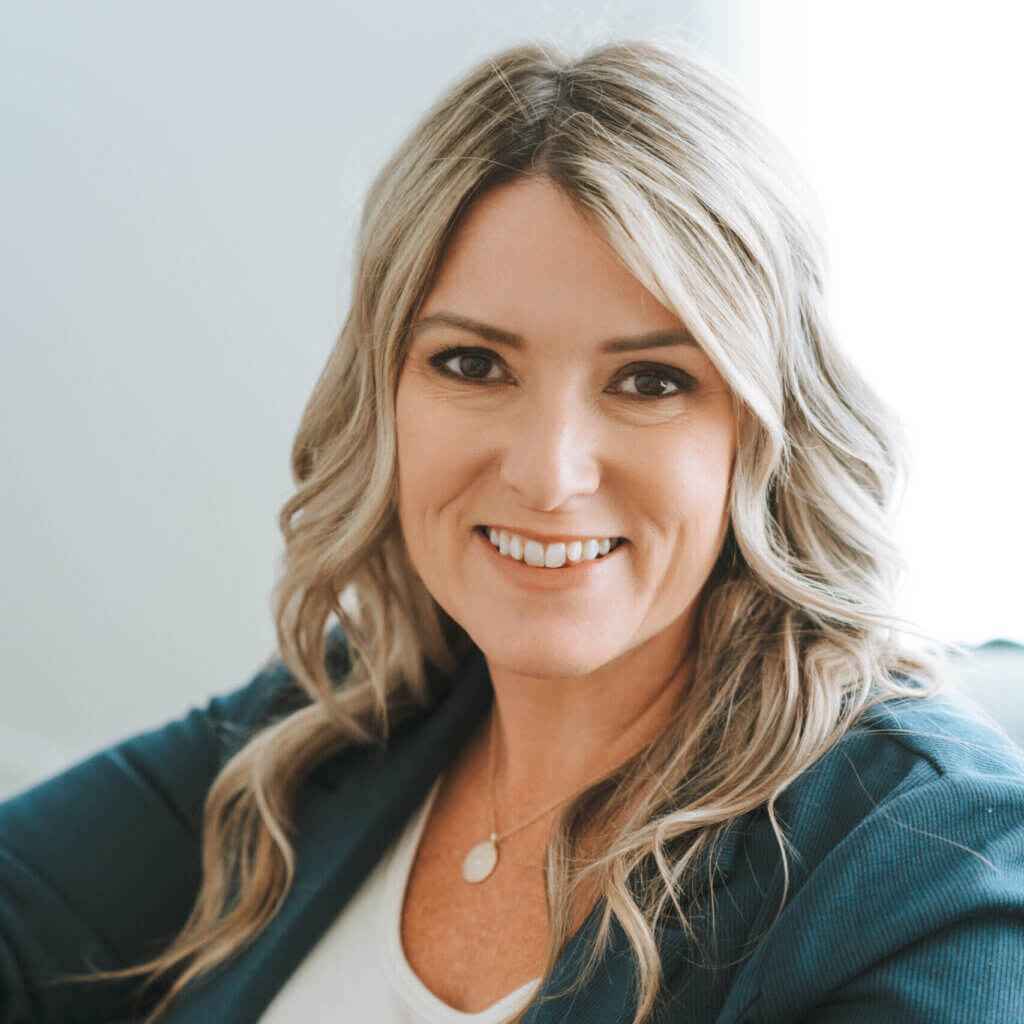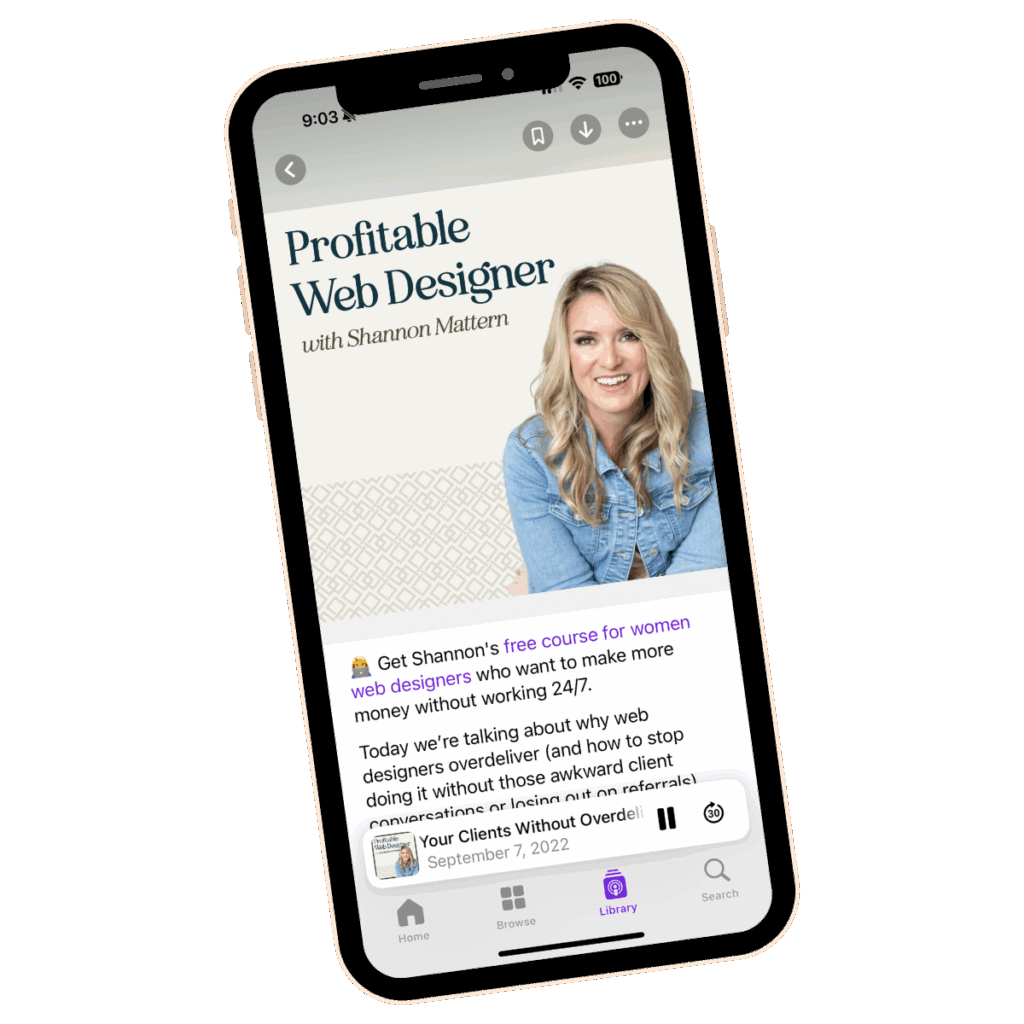Have you ever finally drummed up the courage to reach out to someone you'd love to work with, or a former client who mentioned a new project, or that friend of a friend who mentioned wanting to chat about a new website…
….and then you spend wayyyy too much time drafting the perfect email, your hands start to sweat but you push send anyway, proud of yourself for getting out of your comfort zone…
…and then a couple of days go by and…
Nothing. No response. Crickets.
Your mind starts swirling:
They're probably so annoyed by me! I shouldn't have bothered them. They think I'm pushy and salesy and that my work sucks and now they're avoiding me. See, I knew my prices were too high, they can't afford me. I need to lower my prices, niche down, rebrand, rewrite my website copy and do a complete redesign and THEN I'll be able to attract investment-minded clients…
If that's ever happened to you, then you don't wanna miss this week's episode of the Profitable Web Designer Podcast!
I had a transformational conversation with Liz Mosley, a brilliant graphic designer, branding expert, and host of the Building Your Brand podcast, about how rejection can actually be a stepping stone to success.
I first heard about Liz after one of our Web Designer Academy students shared an interview she did on Chris Do's The Futur Podcast called “Leadership Through Rejection” – and after listening to how she challenged herself to get 100 rejections and ultimately failed because people kept saying yes, I had to have her on the show to talk about it.
In our interview, Liz got real about her own experience with rejection, why she decided to gamify rejection, and how dealing with rejection head-on changed her entire business.
We talk about:
- Liz's personal rejection challenge and how it taught her not to internalize “no’s”
- The impact of gamifying and reframing your approach to rejection, and how it’s more about the process than the outcome.
- How Liz inspired the Rejection Challenge we did inside the Web Designer Academy to help our students create opportunities without all the pressure they normally put on themselves…
- The surprising success of Liz securing a podcast sponsor on her first try despite expecting to be turned down – proving that you never really know until you ask!
- How Liz built her business through Instagram and word-of-mouth, emphasizing the crucial role of being visible and promoting your work.
- The importance of defining success on your own terms, and balancing between creating and consuming content.
You’ll learn so much about handling rejection, changing your mindset, and opening doors you didn’t even know were there. Liz’s journey from doubting herself in a competitive, male-dominated industry to feeling like she truly belongs is something every web designer can learn from!
In this Episode:
- Overcoming Rejection [05:20]
- Gamifying and Reframing Expectations [12:45]
- Impact of Instagram on Business Growth [18:30]
- Mindset Shifts in a Competitive Industry [24:10]
- Balancing Content Creation and Consumption [30:05]
- Personal Goals and Embracing Unexpected Opportunities [37:15]
- The Therapeutic Nature of Starting a Business [45:20]
About Liz:
Liz Mosley is a graphic designer with over 15 years of experience and now specializes in creating creative branding, animated GIFS and websites for small business owners. She hosts the Building Your Brand podcast which with the help of her guests and solo episodes helps small businesses owners feel more confident about all aspects of branding and marketing. Liz also teaches courses and workshops showing people how to create their own branding and GIFS if they don’t have the budget to outsource it. Her goal for her clients and students is for them to come away with branding that they love that helps them to feel so proud and confident promoting their businesses and sharing what they do with the world.
Mentioned In This Episode:
- Building Your Brand Podcast
- Liz Mosley's Website
- Liz Mosley's Instagram: @lizmmosley
- Chris Do’s The Futur Podcast





